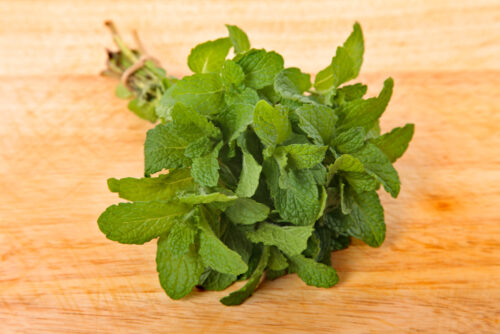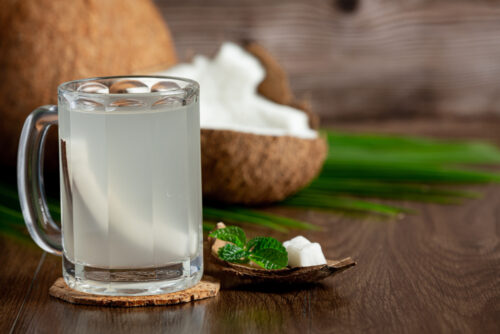Sesame seeds have long been celebrated not only for their subtle, nutty flavor and signature crunch but also for their rich cultural roots and impressive nutritional profile.
Found in kitchens across Asia, the Middle East, Africa, and the Americas, these tiny teardrop-shaped seeds are more than just a garnish; they’re an integral part of many iconic recipes.
From the sesame-crusted breads of Eastern Europe to the velvety tahini in hummus or the aromatic oils in stir-fries, sesame seeds infuse dishes with both texture and character.
But what happens when sesame seeds are off the table, whether due to allergies, unavailability, or dietary needs? This is where the question arises: What can I use instead of sesame seeds?
In this in-depth guide, we’ll explore the best sesame seed substitutes, explore their culinary strengths, and examine how they compare nutritionally and texturally so you can confidently choose the right alternative for any dish.
The Flavor, Culture, and Nutrition of Sesame Seeds

Sesame seeds are the first cultivated oilseed crop known to humanity. They carry thousands of years of culinary and medicinal heritage.
Originating in India and Africa, they spread across the ancient world and became foundational in cultures from Egypt to China.
Sesame seeds symbolize prosperity in many traditions and are still used in rituals, snacks, and daily cooking. Flavor-wise, sesame seeds offer a rich, earthy nuttiness.
When raw, they are mild and creamy. When toasted, they release a deep, warm aroma and crunchy texture that enhances both sweet and savory dishes.
Black sesame seeds, often used in Asian cuisine, are more intense and slightly bitter compared to the lighter, milder white sesame variety. Nutritionally, sesame seeds are small but mighty.
They’re packed with heart-healthy fats, primarily monounsaturated and polyunsaturated fats, and protein, calcium, magnesium, iron, zinc, and B vitamins.
They’re also a rich source of lignans, antioxidants, and hormone-balancing compounds. A quarter mug of sesame seeds has more calcium in it than a full glass of milk, making them especially valuable for plant-based diets.
Poppy Seeds: A Sweet-Nutty Stand-In

Poppy seeds are perhaps the most accessible sesame seeds substitute in Western cuisine.
These dark seeds are slightly smaller in size and provide a similar texture and crunch.
Like sesame seeds, their nutty, somewhat sweet flavor becomes more prominent when toasted. This makes them a suitable replacement for baked goods like bagels, muffins, crackers, and salad dressings.
Poppy seeds have a blue-black hue visually, which may stand out in recipes where the pale appearance of white sesame seeds is traditionally used.
However, the visual difference can be striking and attractive in specific presentations, especially artisan breads or gourmet crackers.
From a health perspective, poppy seeds offer dietary fiber, essential minerals like calcium and magnesium, and trace fatty acids.
While they may not precisely match the taste of sesame seeds, their versatility, crunch, and nutritional value make them a dependable substitute in many applications.
Hemp Seeds: Nutty, Creamy, and Nutrient-Dense
 Hemp seeds make a fantastic substitute for sesame seeds, especially in health-forward recipes. Their soft texture and mildly nutty flavor work beautifully in both savory and sweet contexts, from granola and yogurt to salads and smoothies.
Hemp seeds make a fantastic substitute for sesame seeds, especially in health-forward recipes. Their soft texture and mildly nutty flavor work beautifully in both savory and sweet contexts, from granola and yogurt to salads and smoothies.
Though less crunchy than sesame seeds, hemp seeds’ creamy richness enhances the mouthfeel of recipes. One of the most significant advantages of hemp seeds is their nutritional value.
They’re one of the rare plant protein sources, having all nine essential amino acids. They’re also full of omega-3 and omega-6 fatty acids, making them a heart-healthy option.
With high vitamin E, magnesium, and zinc levels, hemp seeds can rival sesame in their nutrient profile.
They’re an excellent choice for people avoiding common allergens. They blend well into raw and cooked dishes alike, providing subtle flavor without overpowering the dish.
Sunflower Seeds: Crunchy, Accessible, and Full of Flavor

Sunflower seeds, particularly when hulled and unsalted, are a practical and widely available sesame seed replacement.
When toasted, their nutty, slightly earthy flavor intensifies, making them ideal for recipes that rely on sesame’s deep taste.
Their texture offers a more defined crunch, adding body and bite to breads, salads, and stir-fries.
Though sunflower seeds are larger than sesame seeds, chopping them can help you more closely mimic their look and feel.
Their versatility also extends to being ground into spreads or used as a crust for meats and vegetables.
Nutritionally, sunflower seeds excel because of their high vitamin E content, healthy fats, protein, and antioxidants like selenium.
For individuals with sesame or nut allergies, sunflower seeds offer a safe, tasty, and nourishing alternative that can be used in both everyday and gourmet cooking.
Pumpkin Seeds: Bold Flavor with a Textural Edge

Pumpkin seeds, or pepitas, bring a hearty crunch and a bold, earthy flavor that can elevate any dish where sesame seeds are typically used.
Though larger and more noticeable in appearance, their taste and texture adapt well to salads, baked goods, soups, and grain bowls.
Roasting them boosts their richness, drawing out caramel-like, nutty tones that echo the toasty complexity of sesame.
Chopping pumpkin seeds can help them better emulate sesame seeds in texture and size. Their vibrant green color adds a unique aesthetic touch, making them especially popular in modern or health-centric recipes.
Pumpkin seeds are a goldmine of magnesium, zinc, iron, and tryptophan, an amino acid linked to better sleep.
Pumpkin seeds also contain antioxidants like lutein, which support eye health. Whether for flavor, nutrition, or crunch, they are a versatile and satisfying sesame seed substitute.
Flax Seeds: Mellow Flavor, Mighty Benefits

Flax seeds offer a milder flavor than sesame but can be a great substitute when subtle nutty notes and texture are needed.
Flax seeds are especially effective in baking, and their binding properties are prized in vegan recipes. They can be used whole for crunch or ground into meals and batters for a smoother consistency.
Regarding health benefits, flax seeds are rich in omega-3 fatty acids, primarily ALA, which is known for its anti-inflammatory effects.
They’re also high in soluble and insoluble fiber, which aids digestive health and helps regulate cholesterol. Lignans in flax seeds offer antioxidant and hormone-regulating properties, much like sesame.
Although flax doesn’t fully replicate the taste of toasted sesame, it excels in terms of health support and culinary versatility.
Chopped Peanuts: Bold and Familiar

Chopped peanuts are a robust substitute, especially in dishes with pronounced nuttiness and satisfying crunch.
Their flavor is good for stir-fries, noodle dishes, and salads, particularly those with Southeast Asian or Chinese influences.
Because peanuts become chewy when baked, they’re best used as toppings or mix-ins rather than baked directly into breads or pastries.
Finely chopping them helps mimic sesame’s size and texture for aesthetic consistency. Peanuts offer a rich source of protein, niacin, folate, and healthy fats.
While not suitable for those with nut allergies, they provide an economical and flavorful alternative for many culinary uses where sesame seeds might otherwise shine.
Pine Nuts: Gourmet Substitute with Rich Flavor

Though more expensive, pine nuts are a luxurious sesame seed replacement in upscale dishes. Their tender crunch and buttery flavor make them excellent for pestos, grain salads, and baked toppings.
Toasting them heightens their complexity and brings them closer to taste and sesame’s roasted depth.
While they differ in appearance and cost, pine nuts work well in recipes where sesame seeds are used for flavor and richness rather than as a primary texture element.
Pine nuts are full of vitamin K, magnesium, and monounsaturated fats. They also contain pinolenic acid, which may help curb appetite and support cholesterol levels.
Though not an everyday substitute, pine nuts are ideal for special occasions or when aiming for elevated flavor profiles.
Final Thoughts: Expanding Flavor Horizons Beyond Sesame
Substituting for sesame seeds doesn’t mean compromising on flavor or texture. Whether you’re looking for a mild and creamy note, a hearty crunch, or a nutritional boost, there are multiple alternatives that fit seamlessly into various culinary roles.
The key lies in identifying what role sesame plays in your recipe, whether it’s for crunch, flavor, aroma, or nutrition, and then selecting a substitute that replicates or enhances those qualities.
From nutrient-dense hemp and flax to the indulgent richness of pine nuts, the options are plentiful and varied. Each brings its own personality to the plate, opening up creative possibilities in your cooking.
So the next time you find yourself without sesame seeds, or if you’re navigating allergies or dietary preferences, rest assured that with a little knowledge, your recipe can still sing with flavor, texture, and depth.
With TheFoodNom, explore more substitutes and understand their dietary significance in modern cooking.











